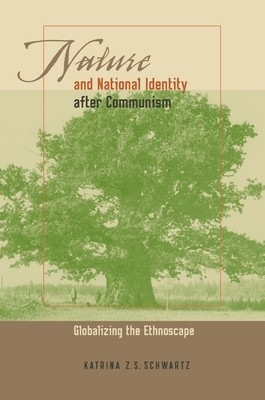
- We will send in 10–14 business days.
- Author: Katrina Z S Schwartz
- Publisher: University of Pittsburgh Press
- ISBN-10: 0822959429
- ISBN-13: 9780822959427
- Format: 16.3 x 23.5 x 2 cm, softcover
- Language: English
- SAVE -10% with code: EXTRA
Nature and National Identity After Communism (e-book) (used book) | bookbook.eu
Reviews
Description
In this groundbreaking book, Katrina Schwartz examines the intersection of environmental politics, globalization, and national identity in a small East European country: modern-day Latvia. Based on extensive ethnographic research and lively discourse analysis, it explores that country's post-Soviet responses to European assistance and political pressure in nature management, biodiversity conservation, and rural development. These responses were shaped by hotly contested notions of national identity articulated as contrasting visions of the "ideal" rural landscape.
The players in this story include Latvian farmers and other traditional rural dwellers, environmental advocates, and professionals with divided attitudes toward new European approaches to sustainable development. An entrenched set of forestry and land management practices, with roots in the Soviet and pre-Soviet eras, confront growing international pressures on a small country to conform to current (Western) notions of environmental responsibility-notions often perceived by Latvians to be at odds with local interests. While the case is that of Latvia, the dynamics Schwartz explores have wide applicability and speak powerfully to broader theoretical discussions about sustainable development, social constructions of nature, the sources of nationalism, and the impacts of globalization and regional integration on the traditional nation-state.
EXTRA 10 % discount with code: EXTRA
The promotion ends in 17d.20:30:51
The discount code is valid when purchasing from 10 €. Discounts do not stack.
- Author: Katrina Z S Schwartz
- Publisher: University of Pittsburgh Press
- ISBN-10: 0822959429
- ISBN-13: 9780822959427
- Format: 16.3 x 23.5 x 2 cm, softcover
- Language: English English
In this groundbreaking book, Katrina Schwartz examines the intersection of environmental politics, globalization, and national identity in a small East European country: modern-day Latvia. Based on extensive ethnographic research and lively discourse analysis, it explores that country's post-Soviet responses to European assistance and political pressure in nature management, biodiversity conservation, and rural development. These responses were shaped by hotly contested notions of national identity articulated as contrasting visions of the "ideal" rural landscape.
The players in this story include Latvian farmers and other traditional rural dwellers, environmental advocates, and professionals with divided attitudes toward new European approaches to sustainable development. An entrenched set of forestry and land management practices, with roots in the Soviet and pre-Soviet eras, confront growing international pressures on a small country to conform to current (Western) notions of environmental responsibility-notions often perceived by Latvians to be at odds with local interests. While the case is that of Latvia, the dynamics Schwartz explores have wide applicability and speak powerfully to broader theoretical discussions about sustainable development, social constructions of nature, the sources of nationalism, and the impacts of globalization and regional integration on the traditional nation-state.


Reviews